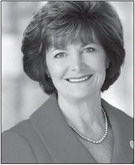Don’t turn a blind eye — April is National Child Abuse Prevention Month

Don’t turn a blind eye — April is National Child Abuse Prevention Month
In recent years, the state child abuse hotline has accepted more than 30,000 calls of suspected abuse or neglect.
And currently more than 5,000 children are in our state’s foster care system.
April is National Child Abuse Prevention Month. It is a time to acknowledge the importance of families and communities working together to prevent child abuse and neglect, and to promote the social and emotional well-being of children and families. During the month of April and throughout the year, communities are encouraged to share child abuse and neglect prevention awareness strategies and activities and promote prevention across the country.
Every family faces challenges. Whether it’s the car breaking down, losing a job, or moving into a new home, we all need support when life gets difficult.
Building on strengths is a proven way to keep the family strong and enhance child well-being. Experts recommend take time at the end of each day to connect with your children with a hug, a smile, or a few minutes of listening and talking. Find ways to engage your children while completing everyday tasks (meals, shopping, driving in the car). Talk about what you are doing and ask them questions.
Social connections are also important in preventing abuse. Participate in neighborhood activities such as potluck dinners, street fairs, picnics, or block parties.
Join a playgroup or online support group of parents with children at similar ages.
In our most recent legislative session, we passed several measures to help provide resources to our foster children and the families that care for them. Our state budget included a $26 million increase to DHS for foster care support.
We also passed legislation re-defining the word “fictive kin” to include individuals who have a close relationship with the child’s family. DHS can consider “fictive kin” when determining child placement in care.
We also passed legislation to provide standard payment to community providers to help ensure children can stay in their own community if removed from the home.
And we passed legislation allowing 20 foster children a year to become eligible for the Succeed Scholarship Program which would allow them to attend private school on a scholarship.
DHS has provided helpful resources for this month on the agency’s website. Visit www.humanservices.arkansas.gov for more information.

From State Representative Deborah Ferguson


Share